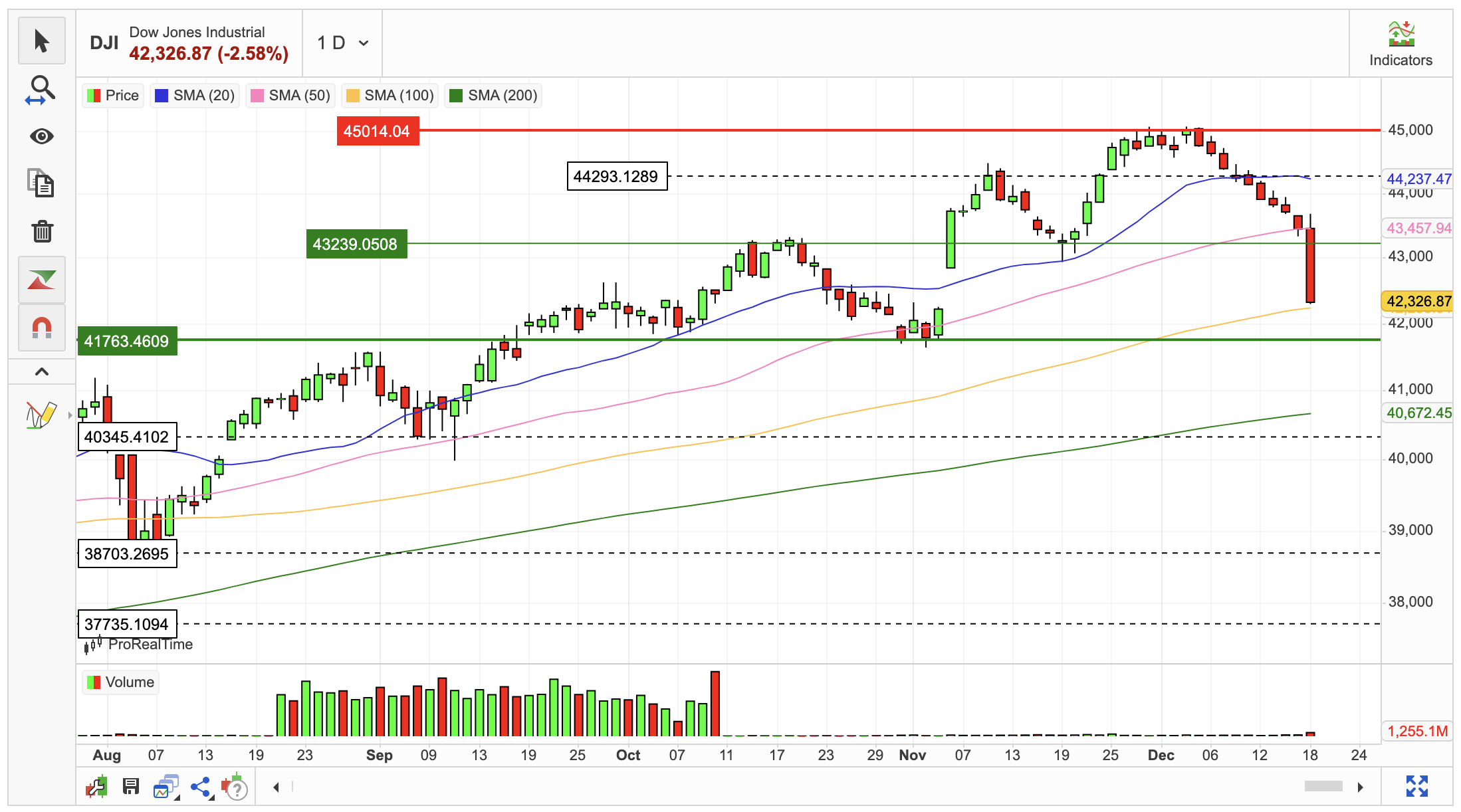Powell’s Post-Meeting Remarks Sends Markets Crashing
- This topic has 0 replies, 1 voice, and was last updated 10 months ago by .
-
Topic
-
The US stock market faced significant losses on Wednesday following the Federal Reserve’s pivotal meeting, where Chair Jerome Powell reinforced the central bank’s cautious stance on monetary policy.
While the Fed delivered the widely anticipated 0.25% interest rate cut, Powell’s post-meeting remarks focused on the persistent inflation risks and the potential need for sustained higher rates well into 2025.
This hawkish tone rattled investors, who had been hoping for clearer signs of a dovish pivot amid mixed economic data.
Powell emphasised that while inflation has moderated, core inflation remains elevated, and robust consumer spending continues to exert upward pressure on prices.
He further noted that the Fed would remain “data-dependent” but warned against premature expectations of further rate cuts.
In response, all major indices saw sharp declines. The Dow Jones Industrial Average tumbled 1.8%, losing over 600 points, marking its 10 consecutive day in the red—a streak not seen since 1978.
The S&P 500 fell 2.5%, closing at its lowest level in three months, as broad-based selling affected nearly every sector.
The tech-heavy Nasdaq Composite also dropped 3.2%, driven by steep declines in mega-cap technology stocks, which are particularly sensitive to interest rate expectations.
Market reaction reflected investor unease about the Fed’s signal of prolonged monetary tightening.
Bond yields surged as traders adjusted expectations for the path of rates in 2025, with the 10-year Treasury yield climbing to 4.85%. Higher yields weighed heavily on growth stocks and sectors like technology and consumer discretionary.
Adding to the day’s volatility, trading volume surged significantly across all indices, indicating heightened investor activity as market participants reassessed their portfolios in light of Powell’s comments.
Energy and financials saw some of the steepest declines, while defensive sectors like utilities and healthcare managed to limit losses.
The day’s losses underscore the continued tension between hopes for an economic soft landing and the reality of persistently high inflation, which remains a top concern for the Federal Reserve.
With just weeks left in 2024, markets remain on edge as investors look for clarity on the Fed’s long-term policy direction and its implications for growth and earnings in the new year.
